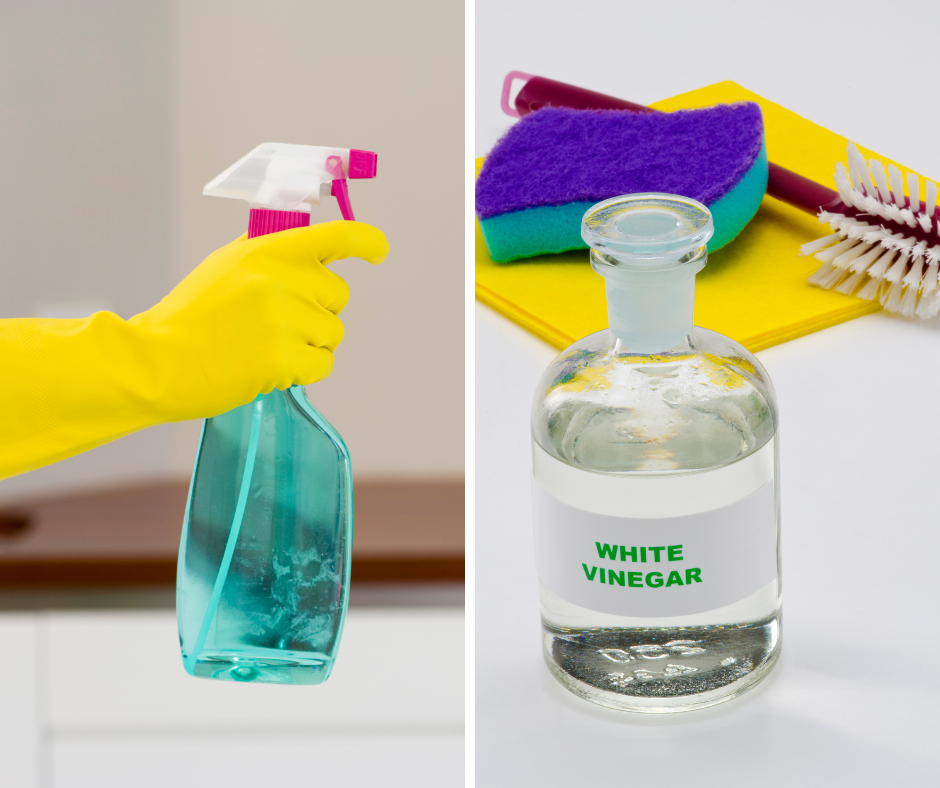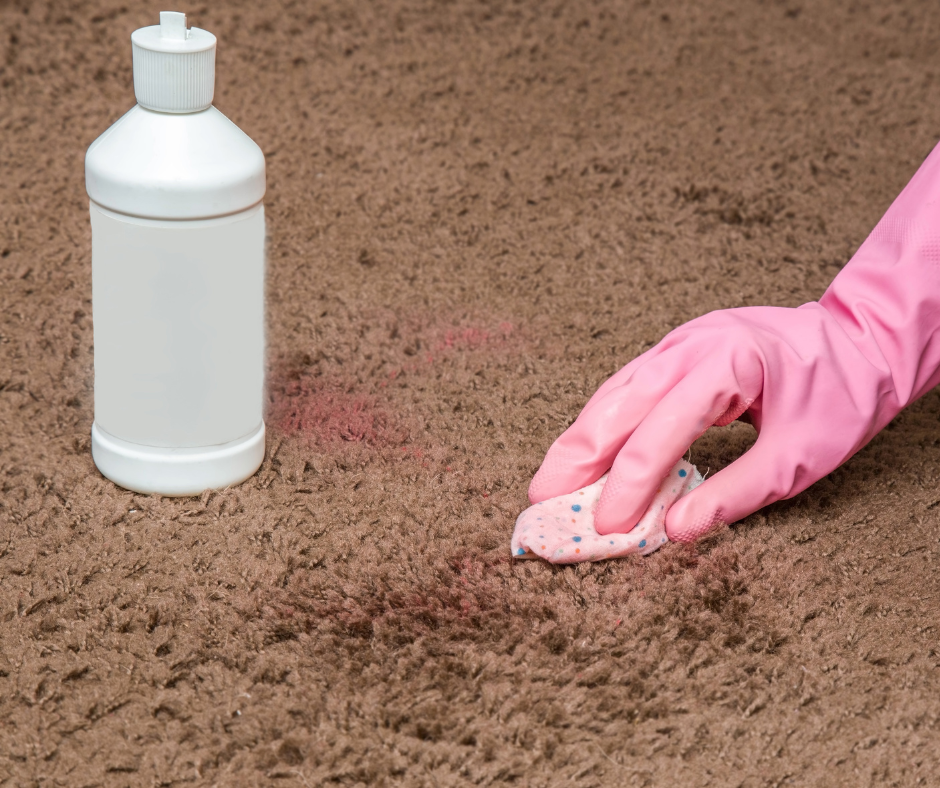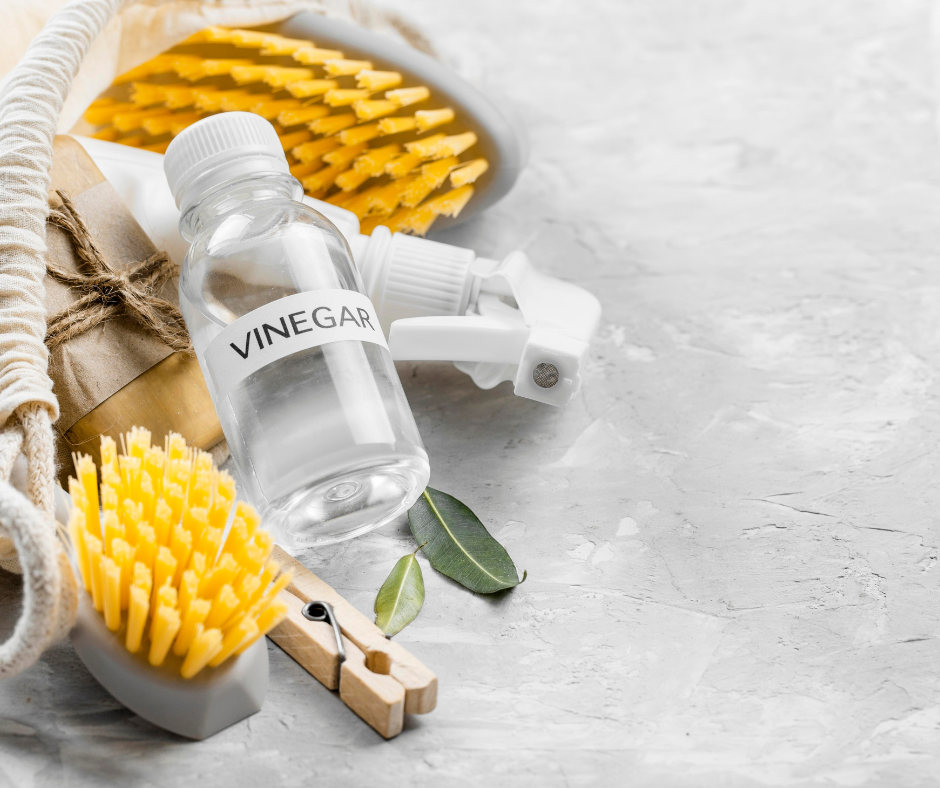If you do the cleaning around the house, then you know firsthand how difficult some stains can be to remove. You use different scrubs and cleaners, but the pale silhouette of the stain still peers back at you. You need a powerful cleaner that gets the stain off without the need for heavy scrubbing. Which brings up the question: what works better, CLR or vinegar?
Vinegar is a natural acidic product that is safe to use on many surfaces. It doesn’t leave a stain behind and is less likely to cause erosions. Calcium lime rust (CLR), on the other hand, is a heavy-duty acidic chemical that’s 15 times more concentrated than vinegar. It removes stubborn stains quickly, but it can damage some delicate surfaces and materials.
It’s clear that both cleaners have different uses. In some situations, it’s best to use vinegar while CLR is set aside for the toughest of stains and rusty tools. But which situations are these? And when should you choose one over the other?
In This Article We'll Discuss
What Works Better, Vinegar or CLR?

Both CLR and vinegar have different uses. The material, surface, and type of stain will determine which cleaner you should use. Since you mainly use these cleaners around the house, here are the most common surfaces and stains you might encounter, and which cleaner is best for each situation:
Rust
To get rid of rust, you will need a concentrated acidic cleaner with low pH. CLR fits the bill better than vinegar due to its high concentration. However, you’ll need to dilute the CLR with warm water before applying it to the rusty surface. Soak a cloth in the diluted cleaner and hold it against the rust for two minutes.
Coffee Maker
If you don’t clean the coffee maker regularly, grime build-up can be difficult to clean. But, no matter how tough the stain or dirt on the coffee maker is, you shouldn’t use a strong chemical— even if you’re cleaning the outside of it. The traces of chemicals left in the coffee maker could end up in your coffee.
Add one tablespoon of vinegar to a cup of warm water, then dip a cloth in the liquid and gently rub the inside of the coffee maker. For stubborn stains and grime on the outside, you might have to scrub hard and clean it a few times.
Showerhead
Bacteria and gunk tend to build up where humidity levels are high. Whether the showerhead is made of metal, plastic, or a combination of both, it’s safe to use CLR or vinegar to get it spotlessly clean. As usual, you’ll need to mix the cleaner with warm water and apply it to the dirty areas using a clean cloth.
Toilet

The toilet is not considered a sensitive surface, so you can go ahead and use CLR on the toilet bowl without worrying about damaging it. However, you shouldn’t apply this chemical— even when diluted in water— for more than two minutes. It could leave stains that are hard to remove. This applies to other surfaces as well, such as the sink, the bathtub, and tiles.
Washing Machine
Although the washing machine isn’t a sensitive appliance, and it won’t affect the food you consume, it’s safer to use vinegar rather than CLR to get it cleaned up. The detergents and chemicals you pour into the washing machine can interact with CLR. This could cause erosion or leave stains on the drum or the internal parts of the machine.
Dishwasher
Much like a washing machine, a dishwasher has trace amounts of chemicals, so it’s safer to use vinegar to clean it. This is especially true if you want to clean the dishwasher with some plates, silverware, and glassware inside.
Water Heater
You can use CLR to clean the water heater. Again, you should rinse the chemical off and not let it stay on the surface of the water heater for more than two minutes at a time. After scrubbing the gunk and grime, wipe it off with a clean and wet cloth repeatedly until you can only detect a faint smell of CLR on the surface.
Can I Use CLR with Vinegar?

When it comes to using cleaners, we don’t recommend mixing them together. While vinegar is natural, mild, and safe to use on many materials, the same cannot be said about CLR. Calcium lime rust, as the name implies, is a chemical with different ingredients that could interact with vinegar and have unpredictable outcomes.
This is why you should either use CLR or vinegar separately, but not mix them together. If a stain is too difficult to remove with vinegar, then you should rinse the vinegar off the stained area thoroughly before applying the diluted CLR.
Is CLR or Vinegar Safer to Use?

Vinegar, by far, is considered the safer cleaner to use on just about any surface in your house. Whether it’s a kitchen appliance, a pot, or silverware, using vinegar will not damage the surface and, if it gets into your food, you have nothing to worry about.
CLR is a concentrated chemical that you should never use on tools and appliances in the kitchen where it could end up contaminating the food you eat. It’s also quite powerful, so it isn’t safe to apply it to any surface for more than two minutes at a time.
Pros and Cons of CLR

Calcium lime rust is a powerful cleaner that lets you remove the toughest stains without having to scrub hard. It helps with rust, gunk, and bacteria build-up. Therefore, it’s the go-to cleaner when faced with stubborn stains.
But CLR has drawbacks. It’s a chemical that makes it unsafe to use in the kitchen. And, no matter what surface you use CLR on, you shouldn’t leave it for more than two minutes to avoid damaging the surface. Also, you should never use CLR on the fridge, on marble surfaces with calcium coatings, on plastic, or on painted surfaces.
Pros and Cons of Vinegar

Vinegar is a natural cleaner that is safe to use on any surface. You won’t have to worry about it contaminating food since it has no chemical ingredients. It doesn’t interact with the surfaces you’re cleaning and it won’t leave behind stains.
That said, vinegar is a mild acidic cleaner that doesn’t help with stubborn stains. If you want to clean up a rusty tool or get rid of aged gunk build-up, vinegar isn’t very effective. For stubborn stains, you will need to go over the stain a few times before you can get it off.
Conclusion
When it comes to using a cleaner, both vinegar and CLR have their merits and drawbacks. Vinegar is considered the safer of the two cleaners since it’s a mild and natural liquid. You can use it on any surface without worrying about chemical interactions or stains.
CLR is a powerful chemical cleaner that’s 15 times more concentrated than vinegar. You should use it with tough stains and rust, but never leave it for more than two minutes or you will damage the surface.

